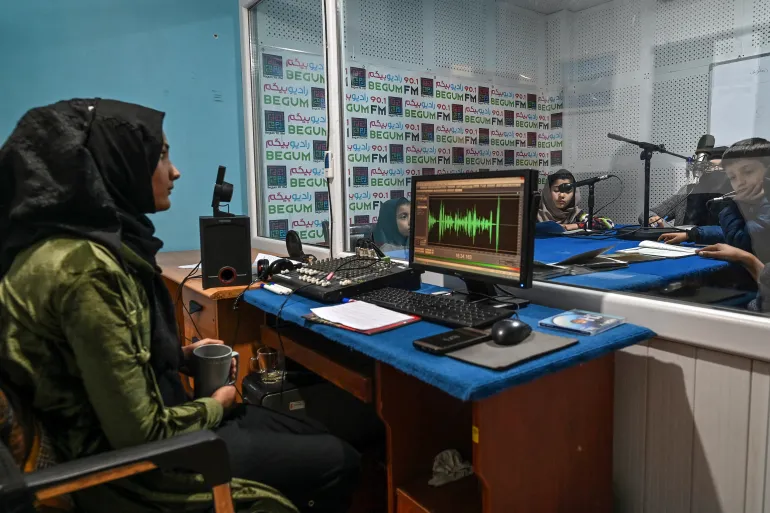KABUL — Three weeks after the Taliban shut down two private radio stations in Kabul, the outlets remain closed, and two detained journalists have yet to be released, the Afghanistan Journalists Center (AFJC) said Sunday.
On Saturday, the Taliban-run Ministry of Information and Culture announced that it had granted permission for Radio Begum and Jawanan Radio to resume operations. However, the AFJC condemned the conditions imposed for their reopening, as well as the continued detention of journalists and new restrictions that it said exceed Afghanistan’s media laws.
In a statement, the Taliban’s ministry said that the radio stations could reopen only if they adhered to the group’s principles, followed “journalistic ethics,” and avoided future violations.
Yet, citing sources in Kabul, the AFJC reported that neither station has been allowed to reopen and that the two detained journalists remain in custody.
Radio Begum was shut down on February 5 by Taliban intelligence forces, reportedly with the direct involvement of the Ministry of Information and Culture. The ministry accused the station of multiple violations, including producing content for a television channel based abroad.
That same day, Jawanan Radio, which operated from the same building as Radio Begum, was also forced to close.
Taliban intelligence forces reportedly interrogated employees, confiscated media equipment—including computers, hard drives, and documents—and arrested two journalists.
Radio Begum, which launched on March 8, 2021, has continued broadcasting despite increasing restrictions. In response to growing Taliban censorship, the station’s parent organization, Begum Organization for Women, expanded its initiatives, launching Begum TV in March 2024 and an online educational platform in 2023 to provide home-based learning programs for Afghan girls barred from attending school.
Jawanan Radio, which has been on air since 2011, has stated its mission as promoting civic awareness and fostering dialogue among Afghans.
The AFJC criticized the Taliban’s conditions for reopening the radio stations, arguing that forcing media outlets to commit to restrictions beyond Afghanistan’s media laws is a violation of press freedom. The organization called for the immediate release of the detained journalists.
It also reiterated that under Afghanistan’s media law, media organizations have the right to operate freely and should not be subject to intimidation or restrictions.





